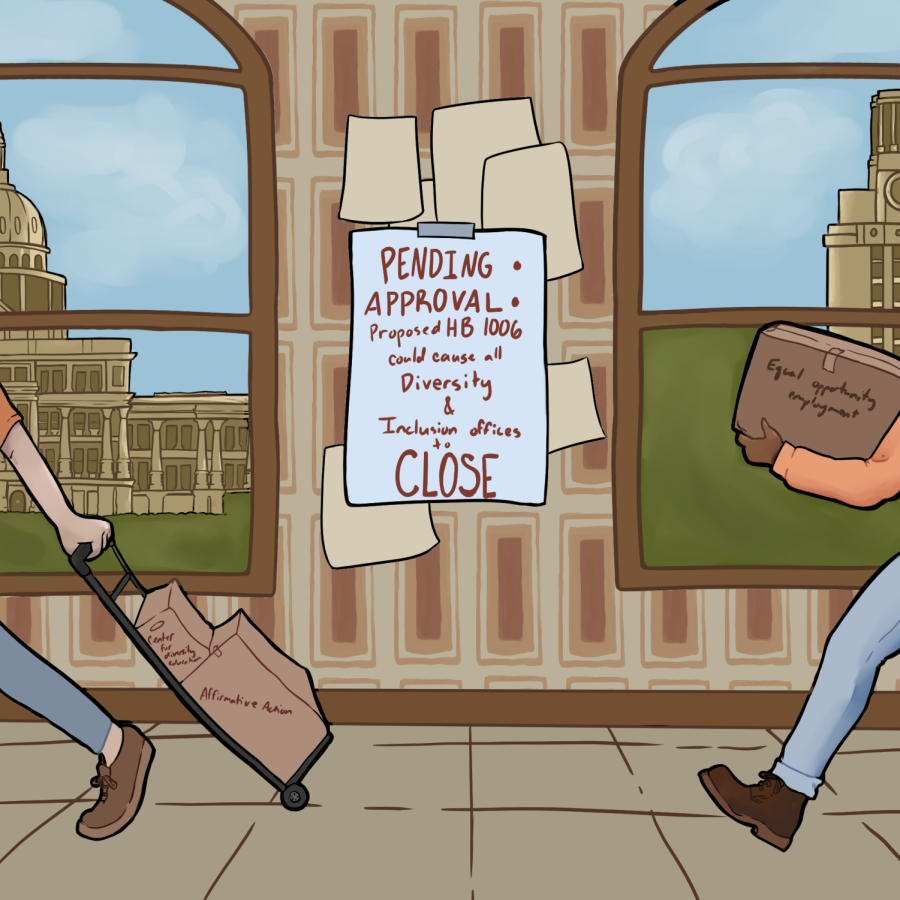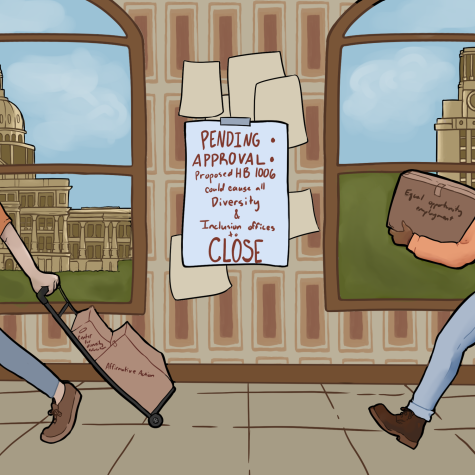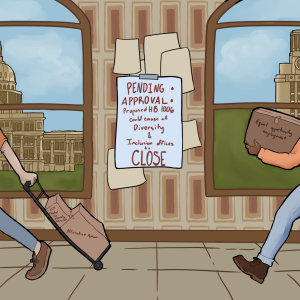Diversity, equity, inclusion: proposed Texas bill seeks to increase ‘viewpoint diversity’ in higher education
January 26, 2023
The Texas legislature may consider a bill this session from State Rep. Carl Tepper, aiming to limit talk of social issues such as racial, sexual and gender identity on university campuses by prohibiting federally-funded Diversity, Equity and Inclusion offices.
“The purpose of higher education is to facilitate students’ discovery, improvement and dissemination of knowledge,” Tepper said in an email statement. “Although the state of Texas is home to many world-class universities, certain public institutions of higher education have fallen short in their duty to allow intellectual freedom and viewpoint diversity.”
According to HB 1006, the bill aims to protect students and staffs’ First Amendment rights and its guarantee of free speech, assembly, press and to petition the government for grievances.
“While I strongly believe that public universities should allow a wide variety of debates and opinions, public universities should not use taxpayer dollars to inculcate students with certain politically divisive values,” Tepper said.
For UT, it could mean disbanding the three-year You Belong Here Initiative that aims to increase educational equity and campus diversity and the Coalition of Diversity, Equity and Inclusion that assists in making classes more inclusive. According to the UT DEI Office website, these initiatives fall under their operations.
“Texas has a very real, very serious and very dark history when it comes to issues of slavery, and when it comes to issues of segregation,” said Brian Peña, University Democrats vice president. “The simple fact that the state legislation doesn’t want to address it and doesn’t want it to be even taught in schools … there’s so much more that they can be doing to actually address the harm that they’ve caused the last several decades.”
According to a fall 2022 census by the DEI office, 54% of UT students identify as non-white. In a 2018 census by the Postsecondary National Policy Institute, nearly 17% of college students identified as part of the LGBTQ+ community. Without DEI funding, areas like the University’s Gender and Sexuality Center and Multicultural Center may be vulnerable and could decrease support for students from different backgrounds.
“It’s coming from (the idea that) colleges are indoctrinating kids into a lot of this,” said Grant Rommel, Texas Federation of College Republicans state chair. “It’s going to loosen the political concerns or ramifications that one might get from having a study (or idea) that goes against a certain viewpoint.”
Given it was just proposed, there are no guarantees the bill will pass the House and be signed, Rommel said. He said committees have not been assigned to vote on it yet, and the majority party on the committee the bill is assigned to will influence whether or not it actually passes. According to the bill, if passed, it would go into effect Sept. 1, 2023.
“As long as there are students, faculty and staff who are committed to DEI initiatives, who are committed to justice, studies of ethnicity and identity and gender, there will continue to be that field of study and those (inclusive) institutions and structures within universities,” said Maggie Disanza, the Texas Rising campus organizer, a non-partisan organization that advocates for minority rights.
The University declined to comment on HB 1006 as UT does not respond to pending legislation.





